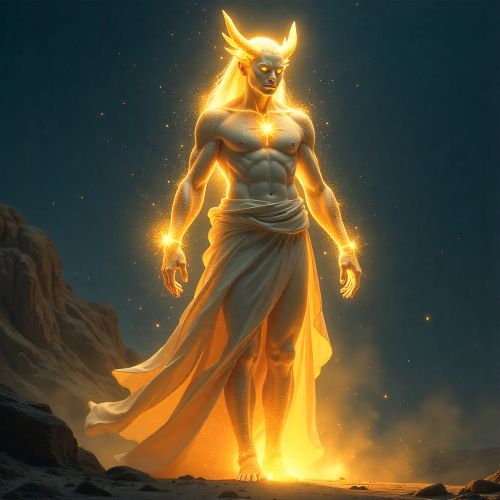Muisca Mythology
Muisca mythology belongs to the Muisca people of the Andean highlands of present-day Colombia, one of the most advanced pre-Columbian civilizations in South America. Their myths, preserved through oral storytelling and early colonial chronicles, reflect a worldview rooted in balance, agriculture, astronomy, and sacred landscapes. The Muisca saw their highland valleys, lakes, and mountains as living, spiritual forces that shaped human destiny. These stories guided community rituals, moral behavior, and political authority, making mythology a foundation of both cultural and spiritual life.
One of the most important figures in Muisca mythology is Bochica, a wise culture hero who brought laws, agriculture, and moral order to the people. According to legend, Bochica also saved the world from a great flood by striking the rocks at Tequendama Falls, creating a waterfall that drained the waters and restored balance. Another key figure is Bachué, the mother goddess who emerged from Lake Iguaque with a child, who later became her husband; together, they populated the earth before returning to the lake in serpent form. Stories like these emphasize creation, renewal, and the sacred role of water in sustaining life.
Other Muisca deities reflect the cycles of nature and cosmic order. Chía, the moon goddess, and Sué, the sun god, represented complementary forces of light and darkness, order and time. The Muisca honored these celestial beings with temples and ceremonies, aligning agricultural practices to the movements of the sun and moon. Lakes such as Guatavita and Siecha held immense spiritual significance, serving as sites for offerings of gold, emeralds, and food. These practices gave rise to the famous legend of El Dorado, where a Muisca ruler was said to cover himself in gold dust and dive into Lake Guatavita as an offering to the gods, symbolizing abundance, sacrifice, and renewal.
Today, Muisca mythology remains a powerful part of Colombian cultural identity. Though colonization disrupted many traditions, modern descendants of the Muisca continue to honor their myths through ceremonies, storytelling, and community revitalization. The sacred lakes and mountains of the highlands are still seen as places of power, while the legends of Bochica, Bachué, and El Dorado inspire literature, art, and scholarship worldwide. Muisca mythology offers more than legendary tales—it provides a window into a worldview that valued harmony with nature, reciprocity with the divine, and the sacredness of water and land. Exploring Muisca mythology is both an encounter with an ancient spiritual system and a reminder of its enduring influence in shaping cultural memory and identity.


